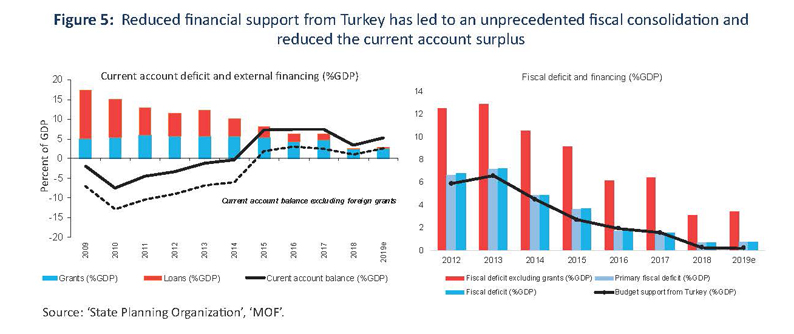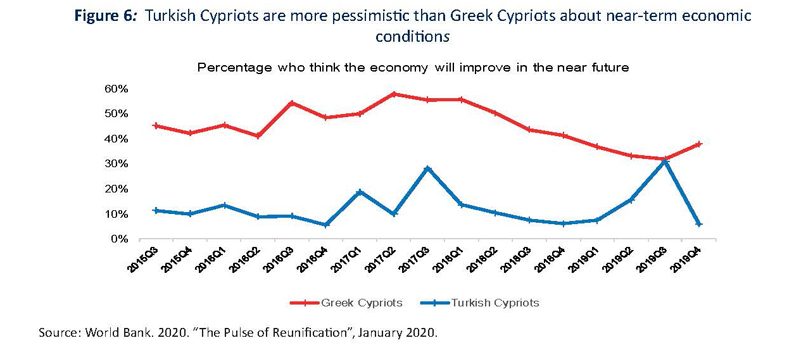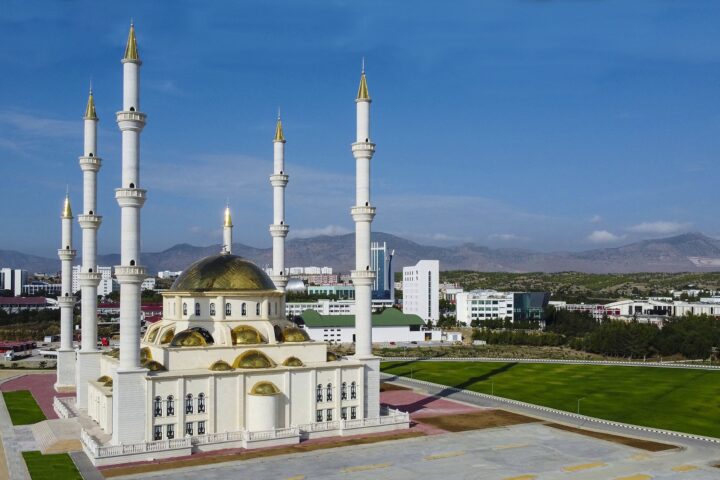Growth in the Turkish Cypriot economy over the next two years will not be high enough to raise per capita incomes unless policymakers implement ambitious reforms, according to the Annual Macroeconomic Monitoring Note, funded by the EU and prepared by the World Bank.
According to the report, the Turkish Cypriot economy slowed in 2018 and is expected to have further decelerated in 2019, worsening the downward trend in income per capita which started in 2012.
Going forward, per capita incomes of Turkish Cypriots could double from between now and 2035 if an effective reform programme is implemented.
To achieve higher incomes, investment in high-return assets, particularly infrastructure and in manufacturing, must double from 16.5% at present to 33.5% by 2035 and women’s participation in the labour force should rise from 40% to 70%, bringing it closer to the EU average.
Growth is expected to reach 1.8% and 2.5% in 2020 and 2021 respectively, as tourism, manufacturing and construction sectors are likely to rebound this year after two years of slowdown and in some cases contraction.
However, a combination of several factors, including Turkey’s economic performance, tensions in the eastern Mediterranean, a further exchange-rate depreciation, or a delay in the signing of the new financial protocol with Turkey, represent downside risks to these forecasts.
The previous economic recovery in the north collapsed following an unprecedented exchange-rate depreciation in 2018 that hit the economy hard.

Annual GDP growth declined rapidly from 5.4% in 2017 to 1.3% in 2018 and merely 0.5% in 2019.
Since 2012, the income per capita of Turkish Cypriots declined steadily.
The slowdown in 2018-19 continued this trend and widened the income gap with the rest of the EU.
As a result, Turkish Cypriots are now on average €2,000 poorer than in 2011 in nominal terms.
“Doing things differently can help reverse the decline in income per capita and double Turkish Cypriots’ incomes over 15 years.
This can be achieved by steering the economy toward a higher growth path, one that’s more resilient to shocks and is greener,” said Vincent Belinga, World Bank economist and co-author of the report.
The report said that the real income per capita of Turkish Cypriots could double from between now and 2035 by investing more in higher-quality physical assets; improving the quality of human assets by addressing skills gaps and inefficiencies in the education system; improving labour force participation by facilitating access to work opportunities for youth and women; and enhancing firms’ productivity by upgrading the business environment and reducing the inefficient use of resources.
Lack of optimism
A doubling of the real income per capita will also require reducing the vulnerability of the economy to shocks so as not to lose the ground gained during periods of high economic growth.
The economy can be made more resilient to shocks by reducing its dependence on imported fuel, creating greater flexibility in labour markets and private sector conditions, as well as protecting the poor, together with improved trust in institutions reinforcing resilience.
This will help not only in achieving the objective of doubling income per capita in a shorter timeframe but also in ensuring that the most vulnerable and deprived are not left behind.
“Both external and domestic factors are likely to further affect already fragile Turkish Cypriot economic sentiment,” the report said.
It said that Turkish Cypriots compared with Greek Cypriots are systematically more pessimistic about economic conditions.

The EU-financed World Bank quarterly “Pulse” has found that over the past year, less than 20% of Turkish Cypriots were optimistic about near-term economic conditions.
While the optimism gap seemed to close over the third quarter of 2019, it surged again in the last quarter of 2019, with only 6% of Turkish Cypriots versus 38% of Greek Cypriots being optimistic about short-term economic conditions.
The report concluded that for the Turkish Cypriot administration to implement policy effectively at times of shocks, it is important to build citizens’ trust in the fairness and efficiency of institutions.
“Such trust is at present at a low level. Improving trust will increase the Turkish Cypriot administration’s capacity to implement difficult policies at times of shocks, so that the economy can adapt to the change, regain its competitiveness and recover.”
Regular Economic Monitoring Report for the Turkish Cypriot Economy and below is the press release issued for the report. The report is also available at the EU website(https://www.abbilgi.eu/en/assets/docs/tccmacromonitoring-2020-en-final-3.pdf)










